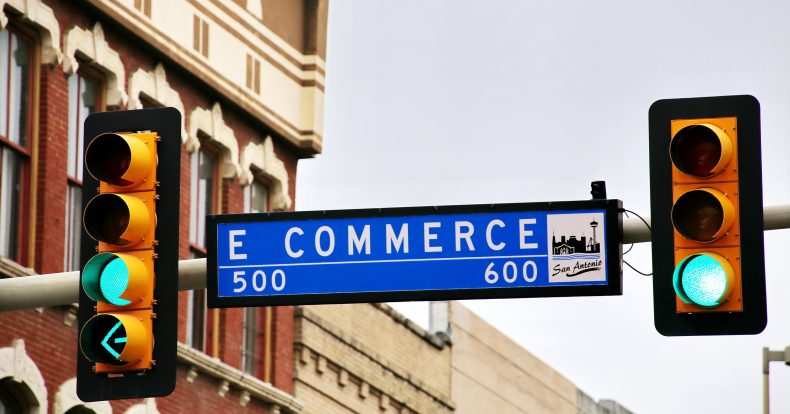5 Consumer Rights in Costa Rican E-Commerce

Electronic commerce or Ecommerce has seen undeniable growth in recent years. However, the new forms of commerce raise questions such as, what are my rights as a consumer if I make purchases electronically, and how can I assert my interests? Given this scenario, there is a need to ensure and spread information about the protection of Costa Rican consumers when making purchases throught electronic mediums.
Consumer Protection in E-Commerce
Costa Rican legislation on consumer protection is vast. Through national regulations, such as the Political Constitution, the Law for the Promotion of Competition and Effective Consumer Protection (Law No. 7472) and its Regulations, a protection of the rights and interests of consumers has been established. Thus, the Regulation to Law No. 7472 establishes the principle of equivalence where it is stated that consumers of electronic commerce have the same protection that is granted to consumers in other forms of commerce.
| “Consumer information and electronic commerce transactions are protected in the same way as those carried out through other forms of commerce.” |
Consumer Rights: E-Commerce
Chapter X of the Regulations to Law No. 7472 establishes the obligations that correspond to the merchant to protect the rights of the consumer in electronic commerce. Among these, five fundamental points can be mentioned:
- Information about the merchant: given that when doing business electronically the personal interaction between the merchant and the consumer is lost, the law establishes that the merchant has the obligation to inform about his true identity; he must specify his name, geographic location, identity card and forms of contact.
- Information about goods and services: Information about the goods and services offered should be clear, accurate and accessible. This includes specifying the nature and condition of the goods, for example, if it is a used good it should explicitly state its condition, functionality and defects if any.
- Information about the transaction and the price: the trader is obliged to inform the consumer clearly and completely about the terms and conditions that exist in the sale. This includes payment procedures, accessibility to the price, the delivery time of the good or the execution of the service, the term and conditions to enforce the warranty and after-sales assistance.
- Protection of personal data: The exchange of personal data between the merchant and the consumer is a common occurrence in e-commerce. In view of this, the merchant has the obligation to ensure, through effective security measures, the protection of personal data provided by its consumers. In other words, the merchant must not disclose or use the personal data of his customers for purposes other than the transaction.
- Advertising and marketing: advertising by the merchant must be consistent with the actual characteristics of the goods or services offered. There is also an obligation to identify any advertising as such.
How can I defend my rights and interests as a consumer?
The consumer that is affected can file a complaint with the Consumer Support Directorate through the website https://www.consumo.go.cr/index.aspx. However, it should be taken into consideration that there are some cases that cannot be claimed by this means. For example: claims for municipal services; complaints against professionals (lawyers, doctors, engineers); claims for public services such as water or electricity; claims for telecommunications services, amongst others.
Once the affected consumer decides to file a complaint, he or she will need to have some minimum requirements.
- Consumer data: full name, ID number, telephone number and means to receive notifications.
- Information about the merchant: full name or company name, physical or legal identity card, telephone number and the specific physical address are required to be notified.
- Facts of the complaint: clear and precise explanation of the facts, the type of contract, the exact dates of knowledge of the breach and the consumer’s signature.
- Evidence: that which supports the complaint, such as an invoice or contract.
In conclusion, the consumer who purchases goods or services through digital platforms such as websites or social networks, enjoys, according to national regulations, the same protection as any other consumer. This becomes relevant when considering that e-commerce will continue to grow, even replacing multiple forms of current commerce. In view of the above, it is vital for the protection of the rights and interests of the consumer to know about these and the means of defense that guarantee the current regulation.
| In short! . Consumers and e-commerce transactions are afforded the same protections as other forms of commerce. The consumer has the right to information about the trader, the transaction, the goods and services, the price and the protection of his personal data. . The affected consumer can file a complaint with the Consumer Support Directorate, following the steps indicated on the site. . You can report issues such as: lack of information, breach of warranty issues of goods or services, false or misleading advertising, among others.. |
Stephanie Villavicencio Arce
Law Student, University of Costa Rica.
E-mail: [email protected]
Bibliographic References
Consumer Support Directorate. Complaints. Dirección Apoyo al Consumidor. https://www.consumo.go.cr/tramites_servicios/denuncias.aspx (accessed October 3, 2021)
Executive Power of Costa Rica. Regulation to the Law on Promotion of Competition and Effective Consumer Protection. September 23, 2013. Retrieved October 3, 2021, http://www.pgrweb.go.cr/scij/Busqueda/Normativa/Normas/nrm_texto_completo.aspx?param1=NRTC&nValor1=1&nValor2=75696&nValor3=0&strTipM=TC.
Navigate articles





